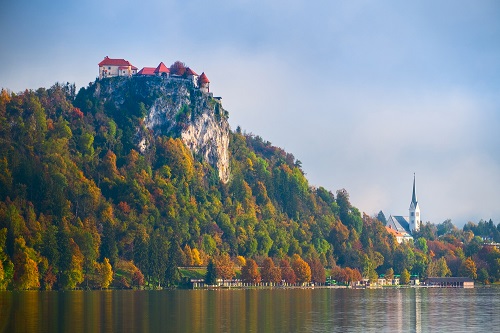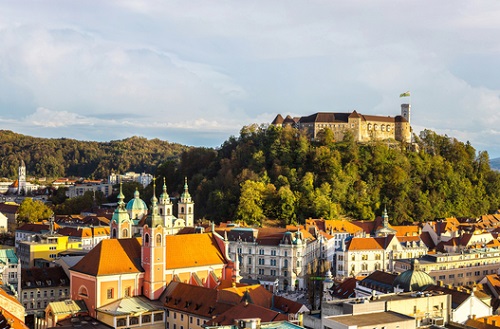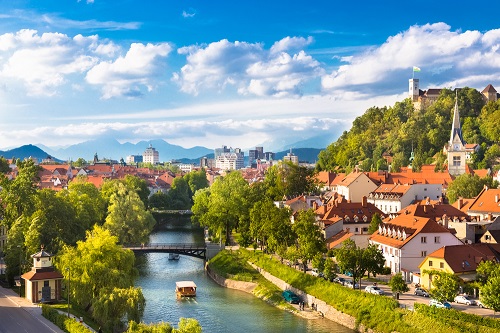If you are living and working in Slovenia, then you may need to access healthcare services while you’re there. The quality of the provision you receive will depend on whether you choose to access the public or the private sector. We will look at all aspects of the Slovenian healthcare system below and consider some of your options.
Public healthcare in Slovenia
Slovenia has a compulsory national scheme of health insurance (Zavod za zdravstveno zavarovanje Slovenije/ZZZS), which is organised by the Health Insurance Institute of Slovenia (HIIS) and the Ministry of Health. It is paid for out of social security contributions and the state. This compulsory health insurance system is characterised by low public funding. A significant role is played by complementary health insurance.
The national health insurance system in Slovenia covers:
- GP visits
- Emergency and outpatient hospitalisation
- Prescription medication
- Transport
- Vaccinations
- Childhood healthcare
- Prenatal and maternity care
- Specialist services
However, the state system does not fully cover all aspects of healthcare. For example, it will only contribute 70% to 80% of the following:
- The non-medical part of hospital treatment (bed and food)
- Prosthetics
- Fertility treatment and abortion
- Some surgeries (such as organ transplants)
The World Health Organisation (WHO) reports that Slovenia’s average life expectancy is above that of the EU. Life expectancy at birth was 80.9 years in 2015, almost five years longer than in 2000. However, the WHO says that these extra years of life are not always spent in good health, and healthy ‘life years’ are below the EU average.

The gains are primarily the result of a consistent reduction in premature deaths from cardiovascular diseases and cancer. However, these continue to be the leading causes of death. Over 3/4 of female deaths and 2/3 of male deaths can be attributed to either cardiovascular diseases or cancer. The mortality rates from both these diseases have fallen since 2000, but they remain above the EU average. They are among the worst in Europe for men.
Slovenian public healthcare is in need of reform. In 2016, the government adopted the National Health Plan 2016–25. They launched a number of initiatives, such as seeking to strengthen primary care and provide greater access to comprehensive and quality treatment. The WHO reports that it aims to do this via improved integration of care and a more adequate professional skill-mix across care levels. This is in part to allow the healthcare sector to respond to the changing needs of an increasingly ageing population.
Thus, Slovenian public healthcare has experienced reform proposals over the last decade, but these have often been subject to delay or outright failure.
Health financing is described by the WHO as a difficult policy area. It is hoped that the adoption of the new National Health Plan (NHP) 2016–25 will help to resolve these issues with healthcare reform.
In 2015, Slovenia had the second highest per capita health spending among the newer member states, at €2039 per head on healthcare, compared to the EU average of €2797. This equals 8.5% of GDP, which is also below the EU average of 9.9%. Nonetheless, despite this, the share of public expenditure on health (71.1%) was 7% below the EU average (78.7%) in 2015.
Public spending on health has steadily decreased due to the ongoing economic crisis. It has been affected by cost containment measures, such as salary freezes, the reduction of tariffs, and increased co-payment costs. The economic crisis highlighted issues with the fiscal sustainability of the health system. The WHO suggests improvement efficiency with regard to hospital care, provider payment, and procurement systems.
Access to health services is considered by health authorities to be good, with
few reports for unmet needs for medical care and very little variation between income groups (this is probably due to supplementary VHI insurance). However, waiting lists for specialised care remain a challenge.
This is partly because Slovenia has one of the lowest physician densities in the EU. A lack of primary care doctors leads to problems with access and over-referrals to specialists, thus placing additional stress on the system. Nurse density was slightly above the EU average in 2015. Part of the aim of the NHP is to improve workforce planning and to distribute health professionals more effectively.
Private healthcare in Slovenia
Although you cannot opt out of the health insurance scheme once you are registered with it, many expats choose to take out private health insurance in addition to their public healthcare cover. This helps them to avoid the problems outlined above, such as bottlenecks with specialist appointments.

The WHO reports that overall private spending as a share of total health spending increased from 26% in 2008 to 28% in 2015. It notes that the share of private expenditure is high compared to the EU average.
The quality of private clinics is generally regarded as good, and equipment can be state of the art. You are likely to find a higher percentage of English-speaking personnel in private sector clinics.
The Ministry is taking steps to address both the transparency and accountability of private provision. You may wish to contact the Slovenian Association of Medical Tourism in relation to private clinics. Many hospitals are accredited with international organisations, such as the Joint Commission International. Corrective eye surgery and dental treatment are popular reasons for foreign patients to visit the country.
Some medical centres are combined with spas and include various forms of treatment, from medical/surgical procedures to complementary therapies, including but not confined to:
- Vascular surgery
- Aesthetic plastic surgery
- Gynaecological procedures, such as diagnostic hysteroscopy, biopsy and histological examination
- Laryngology to correct problems with breathing and sleep
- Orthopaedic services
- Massage therapy
- Sauna
- Apitherapy (bee and honey related)
Some options are:
- Morela Okulisti Center for Eye Surgery
- Institute of Oncology Ljubljana
- Univerzitetni Klinicni Center Maribor
- General Hospital Celje
- Pediatric Kliniko V Ljubljana
- Bolnisnica Topolsica
- Psihiatricna Bolnisnica Ormoz
- Jz Psihiatricna Bolnisnica Vojnik
- University Clinic Golnik
Check with your chosen clinic to see whether they accept your health insurance, and check with your insurer to see whether you need pre-approval. Ask, too, what form of payment your chosen clinic would prefer. Some may give a reduction for cash payments. Do not be afraid to ask for testimonials and references, and contact the expat community for recommendations.

